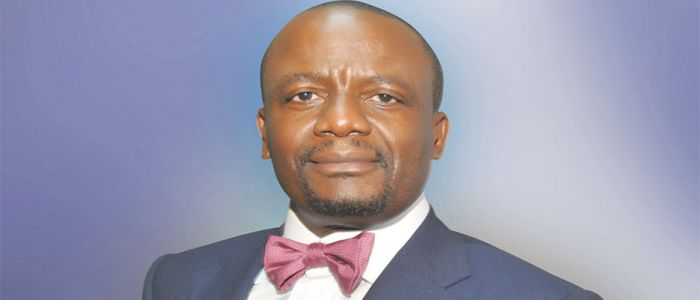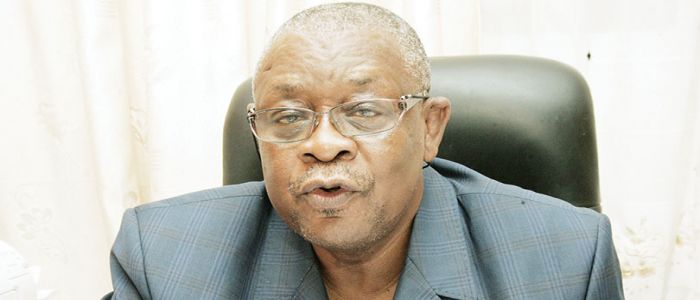Bamenda University Students: “These People Are Pretending To Fight For Your Future”
- Par Paul BIYA
- 14 févr. 2017 16:55
- 0 Likes
In these troubled times that have seen the “beast”, the “Leviathan”, rising in the “holiest of holies”, the University, till now considered as a “closed and apolitical place”, it is incumbent on all of us, irrespective of who we are and regardless of our position, to take a stand to reaffirm the sacredness of this genesiac place in which the destiny of our country is shaped. Renouncing this duty by withdrawing into a hypocritical silence, is being an accomplice of what is being hatched and which is no other than the destruction, the end of our university and consequently, jeopardizing our common future.
Responding to this exigency, I have chosen to speak, on a personal basis and as a citizen concerned with the public affair “res publica”, to students of the University of Bamenda, in a letter, a literary genre that is primarily intimate and private. A letter is something which is destined for someone in particular and for a special purpose. Opening it without the express authorization of the sender, constitutes a denial of one of the fundamental human rights: the right to privacy. Violating the correspondence of someone as it often happens in certain places like the prison, boarding schools…, is entering illegally in the very subjectivity of this person. We therefore understand the virulence of the protests of the famous prisoner of Robben Island, Nelson Mandela, whose letters were systematically opened by his jailers.
When it is opened, the letter is no longer exclusively intimate and private. It becomes everybody’s property, a sort of public field “ager publicus” from which each one can take any element for his/her own governance. By choosing this literary genre, I therefore indicate, from the outset, that I want to transcend the particular situation of the University of Bamenda to call on the entire region and why not, other regions. This method was suggested to me by one of the most brilliant intellectuals ever produced by the country, the late Professor Bernard Fonlon, who departed from us some decades ago.
In a text of more that seventy-five pages entitled “Open Letter to African Students” published in 1969 in the venerable journal “Abbia”, nos. 29-30, Bernard Fonlon, one of the founding fathers of the Cameroonian university, pointed out, with rare lucidity, the imperative missions of Africa just after independence:
“Africa must unite and mobilize to block the wave of imperialism that is resurfacing and consolidate its economic independence…” (1969: 77). To achieve this, the Cameroonian scholar indicated two fundamental and absolutely indispensable ways: knowledge and capital. All through the seventy-five pages of his article, Bernard Fonlon showed the relevance and appropriateness of these two ways, while insisting on the former, knowledge, as being more important, the very same for which the university plays a vital role.
While expressing my admiration for this shooting star that vanished too soon, I will not repeat here what has been said with such depth and elegance in the above-mentioned journal. I will deliberately limit my words both from the point of view of extension and that of comprehension.
In the light of extension, I will not speak to African students in general, but to those of Bamenda, more precisely, of the University of Bamenda. From the point of view of comprehension, I will neither deal with university ethics nor its entire missions, referring readers to these lines of my previous works devoted to the stakes of education and the overhauling of the Cameroonian university. Here, I will talk, considering time and space constraints, only of the objective reasons that argue in favour of an immediate resumption of activities at the University of Bamenda.
Dear Students,
Coming back to these unfortunate events that happened in the North West and South West Regions in November 2016 and which till date, have paralyzed academic activities, the first thing that is vividly clear to me is the fact that neither higher education students nor lecturers were at the origin of these events. They fell on you like a meteorite and you are subjected to them today like one suffering under atmospheric pressures, without being able to resist in any way. You neither thought of them, nor scheduled them in your agenda for this academic year. Individuals from here and elsewhere and whose intentions are the polar opposite of your immediate and mediate interests have subjected you to these events with unbearable violence. They decided to use force and intimidation to attack the most fragile, the most vulnerable segment of our society: the youth. Having succeeded in building their life, they have decided to prevent you from growing and building yours. How does this fatal plan look like concretely?
On entering the University, you had a specific project: acquire weapons of science and technology which would enable you to fight, to “manage” (as you love to say) in life. You were right in choosing these weapons because they “constitute the basis of the superiority (…) and his domination in the world” as the late B. Fonlon said, while ignorance represents a nullifying obstacle that blocks our path towards progress. Marcien Towa, another founding father of our university, responded in almost the same words, insisting on the mastery of science and technology in this struggle against underdevelopment and obscurantism. You have therefore embarked on this path, some in vocational schools, others in classical faculties, called upon to professionalize. By preventing you from realizing your project, to forge ahead, these people who want you good, pretending to fight for your future, shatter your hopes for personal fulfilment, both intellectually and professionally. If the current situation persists, some of you who have reached the age limit will no longer be able to join public service or present entrance examinations to vocational schools. So you see the risk that you run and the risk in which you put your families by listening to the demagogic speech of these people and staying cloistered in your rooms.
Your families, most of them branded with a red-hot iron of poverty, place legitimate hope upon you, as potential agents of their emergence and rehabilitation. From elementary school to university through high school, they have spared no effort and have skimped on any means to ensure the financing of your studies. For this academic year, for instance, they have deprived themselves of everything they could have to pay for your university fees, your rooms in the halls of residence, your togas for those who had to complete their training this year. Imagine the financial, material and moral damage your parents might suffer if the current situation persists. I am not mistaken in saying that some of them had already psychologically liberated themselves from the idea that you would graduate this year and that the sacrifices they have been making would end. Some, and they are many, were even starting to fantasize about your first pay slip. What would they do if the academic year was to be declared null? Those who, from their Parisian, London or New York eldorado, flood you with messages through social networks inviting you to boycott classes while their own children quietly further their education elsewhere; have they for a moment thought of the drama they will subject your families to? And what about the State, its project of society in which you hold a central position?
As you know, the State places greater hopes on higher education as a means of producing high-level human resources capable of boosting economic, cultural and social development. For the sake of social justice and so that no region is prejudiced, the State endowed the North West Region with a university whose stated ambition is to become one of the best in Cameroon and the sub- region. This institution now houses establishments whose originality and performance constitute the pride of our country. I am referring here to the Institute of Commerce and Management, the Institute of Transports and Logistics that the University of Bamenda was the first to open. I can tell you without boastfulness that I received positive feedback concerning these avant-garde establishments we should be proud of.
Given the strong desire of the State to set up an efficient higher education system which corresponds to universal standards, substantial financial resources are being disbursed each year as subsidies. Bamenda University, like all State universities, receives billions of CFA francs each year to carry out its academic, heuristic and social missions (outreach). It is thanks to this massive state intervention that the academic infrastructures (amphitheaters, pedagogical blocks, laboratories ...) have been put in place. Thanks to this institutional support, the Bambili campus today displays an infrastructural landscape whose aesthetics and functionality have nothing to envy from those of other universities.
However, given the tremendous needs of the un...
Cet article complet est réservé aux abonnés
Déjà abonné ? Identifiez-vous >
Accédez en illimité à Cameroon Tribune Digital à partir de 26250 FCFA
Je M'abonne1 minute suffit pour vous abonner à Cameroon Tribune Digital !
- Votre numéro spécial cameroon-tribune en version numérique
- Des encarts
- Des appels d'offres exclusives
- D'avant-première (accès 24h avant la publication)
- Des éditions consultables sur tous supports (smartphone, tablettes, PC)














Commentaires